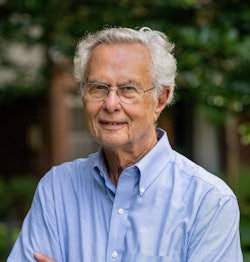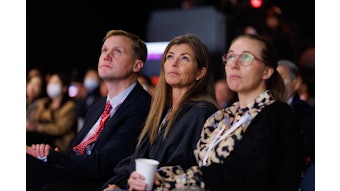The 2022 Eugene Braunwald Academic Mentorship Award goes to Myron (Mike) Weisfeldt
Dr. Weisfeldt is among the first proponents for increasing women and people from diverse racial and ethnic backgrounds in medicine.

Myron (Mike) L. Weisfeldt, MD, FAHA, professor of medicine at Johns Hopkins School of Medicine, has received the association’s Eugene Braunwald Academic Mentorship Award.
“I’m distinctly honored to present this award to Dr. Mike Weisfeldt,” said Association President Michelle A. Albert, MD, MPH, FAHA. “Throughout his career, Dr. Weisfeldt has shown dedication to improving the field of cardiology in almost every sphere. He is a longtime advocate of increased diversity within the field, and he has inspired many career physicians and scientists who have gone on to become leaders within the field, and he has been my longest continual mentor. Congratulations, Dr. Weisfeldt! Your legacy of mentorship, inclusion and diversity continues to be pivotal for so many of us.”
Previously, Weisfeldt headed Cardiology at Johns Hopkins and more recently was chairman of the department of medicine and Osler Professor of Medicine at Johns Hopkins from 2001-2014. He also led the department of medicine at Columbia University from 1991 to 2001.
Dr. Weisfeldt is known to be among the first proponents for increasing women and people from diverse racial and ethnic backgrounds in medicine, especially cardiology. His efforts during his tenure leading Johns Hopkins’ department of medicine resulted in a significant increase in the number of residents, fellows and faculty from under-represented races and ethnicities. Dr. Weisfeldt believes diversity among cardiologists should reflect the diversity within the communities they serve. As a mentor, he encourages an equity-first approach to medicine, community health and science. His leadership was recognized with the University’s 2019 Dean’s Distinguished Mentoring Award.
“During my 14 years as head of cardiology at Johns Hopkins, I was blessed to recruit the best fellows and faculty I could imagine,” said Dr. Weisfeldt. “I believe this is reflected in the single mission statement I adopted for the division: ‘To train the next generation of leaders for American cardiology.’ I learned a great deal about mentoring from that experience that I carried into my leadership of the departments of medicine at Columbia and Hopkins. Among other strategies I always suggested ‘you hitch your wagon to the American Heart Association.’ Fellows and faculty in Hopkins cardiology could submit abstracts to any meeting they liked. However, all abstracts submitted to the American Heart Association Scientific Sessions needed my approval. I am very proud of the number of American Heart Association presidents and leaders, principal deans, professors and NIH directors who have emerged from fellows and faculty over time. I was awarded the Established Investigator Award from the American Heart Association my second year on faculty. Unfortunately, the award had to be relinquished, not without my distress, two years later when I assumed the role of division chief. I am honored by this additional recognition from the American Heart Association.”
Dr. Weisfeldt earned his bachelor’s and doctor of medicine degrees from Johns Hopkins University. He completed his post-doctoral training at Massachusetts General Hospital and at the National Institutes of Health.
Dr. Weisfeldt’s volunteer roles with the AHA are numerous and include serving as president of the association in 1989-1990. He was previously recognized by the AHA in 1992 as a Merit Award recipient, in 1998 as a Gold Heart Award winner, in 2004 with the Herrick Award of the Council on Clinical Cardiology and in 2021 with the Watkins-Saunders Award, which recognized outstanding commitment to overcoming health and community disparities in the state of Maryland.











